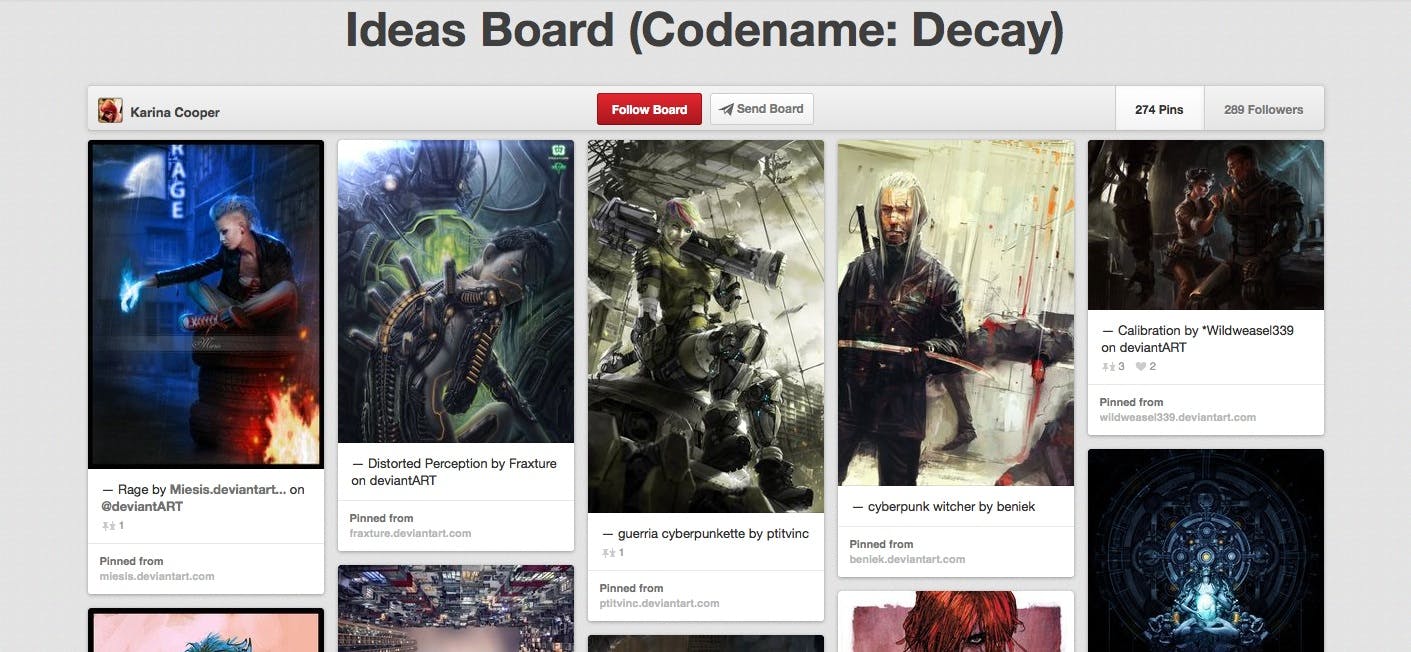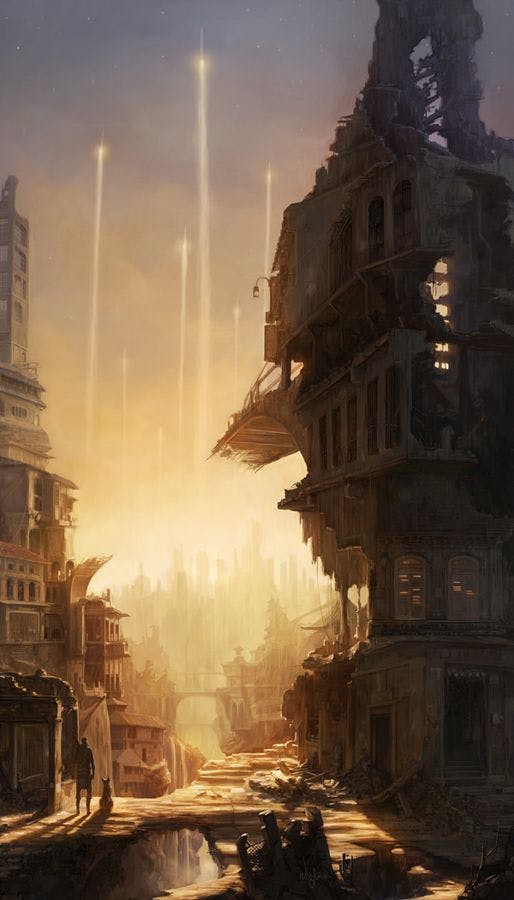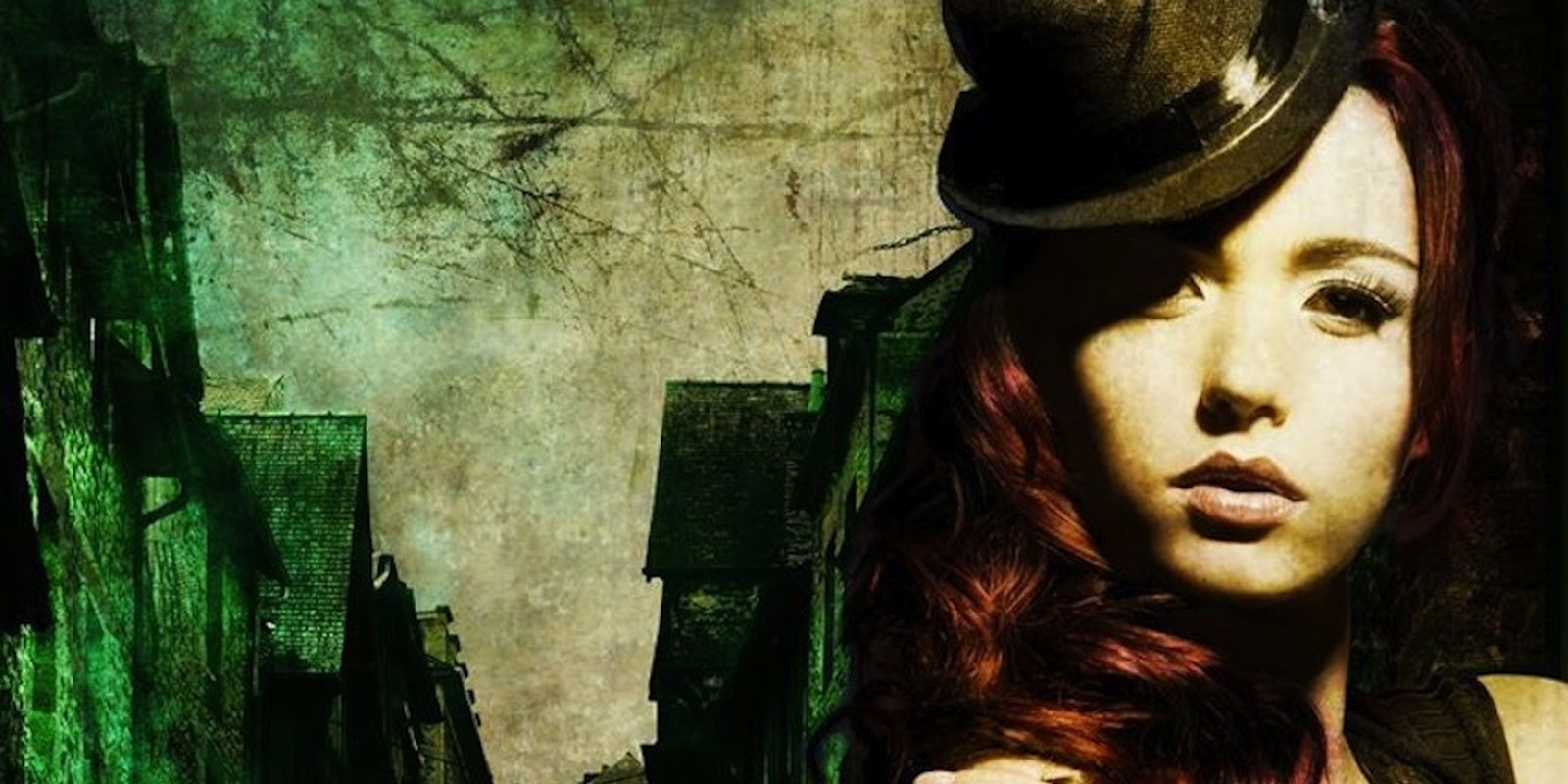As thousands of smudged cocktail napkins and garbled iPhone notes to self can corroborate, authors can find inspiration anywhere. A storyline may tie into an event from their past, a mood could be determined by a song on the radio, or a setting might be picked because of an image they’ve seen somewhere. But what if writers have overlooked an enormous font of inspiration that’s been at their virtual fingertips all along? Enter Pinterest.
Novelist Karina Cooper initially wasn’t very keen on the site’s concept. The idea of browsing the Web to find images to pin seemed like a waste of time when she had writing to do … until she realized some of her mornings were full of doing just that—absentmindedly surfing the Web, looking at art and photos.
She decided to see how Pinterest could possibly help with her work and started creating boards. She began with a board dedicated to her award-winning steampunk fantasy series The St. Croix Chronicles, along with boards titled Art to Inspire Me and My Pretty, Pretty Covers.
“As a visual person, I really like the ability to pull together art and photos that I find inspiring, or that evoke a certain mood or feel. Pinterest was sort of my way to answer all those authors who make scrapbooks or ‘mood boards,’” Cooper told the Daily Dot.

Screenshot via Karina Cooper/Pinterest
To Cooper, Pinterest offers readers a chance to see what is inspiring the author directly while they’re writing a story and developing its hero. The boards let them see what the author is using to visualize the mood or ambience for the story. Cooper said Pinterest is a great place to find and gather these ideas because of the range of pretty, evocative, and inspirational images to look at.
Cooper mixes work and fun on her boards: Some are dedicated to dedicated to her current works or works in progress, while others are just topics that interest her. She labels her boards with the prefix “Series” or “Ideas,” and the latter are especially eye-catching. Each board title is accompanied by a codename such as Ideas Board (Codename: Ash & Bone) and features a variety of beautiful images that could easily play into her urban fantasy novels.
Each codename for an “Ideas” board has a single focus meant to inspire her for the projects attached to that codename. She won’t divulge what her codenames mean right now but explained that the boards act as visual inspiration for projects not published or written yet.
“Each one is devoted to a series type, which I codename to avoid revealing too much about them before they’re written and sold. I don’t always talk about what I’m working on, either—although I’ve been more open about the one called Stormchaser on Twitter,” she explained. “I like to shake it up, too. I’ll go on Pinterest benders where I’ll pin an enormous amount to Codename: Decay, even though I’d be writing on Codename: Stormchaser. I’m tricky that way.”

Art by poibuts/deviantART via Karina Cooper/Pinterest
For each image on her boards, she tries to track down the artist who created it, link the pin to their website, and credit them in the comments so readers can find more of their work. She recommended authors search sites beyond just Pinterest for inspiration; authors can also look for art on sites like Tumblr, deviantART, and Flickr’s Creative Commons and pin the images that speak to them. Cooper said the key is cultivating boards that inspire you and avoiding creating a mishmash of various things with no theme.
“Perhaps my favorite thing to do is what I’ve done with the St. Croix board, where I found a picture that evoked a certain mood, themed item, or other such interesting visual and associated a bit of dialogue from the protagonist of the series,” she said. “I’ve had a lot of positive feedback from readers who find it another glimpse into Cherry St. Croix’s views on the world around her.”
While Cooper recognized there is much more to the site and how it can be used, anyone who thrives on visual inspiration can take advantage of the simplicity of the platform. The site’s inherent beauty and creativity might be just what an author needs to get into the mindset of their fictional world and inspire the setting, mood, or character they’ve been looking for.
Illustration via Karina Cooper/Pinterest


